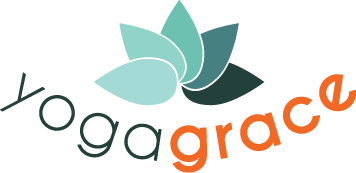Well, I was planning to write a blog post about gut feelings and trusting them, and then I got COVID and have been spending my days feeling crummy and not working. After 9 days of having to face a few of my own demons about REST, my very own inner wisdom is letting me know I have a different post to write.
Why is resting so hard for us as Americans? We either can’t sit still physically or mentally or we can but we feel guilty about it. Somewhere along the line, we developed a morality that doing is better than being. So, you have to do something to be good. You can’t just be innately good. We get very attached to defining ourselves based on what we do—to the point where we forget who we are—which, I believe, is a critical purpose of resting.
I had a co-worker once that was so proud that she only needed 4 hours of sleep a night. There was always an unspoken air of judgement that she was better than the rest of us lazy people who needed 7-8 hours of sleep—like we were wasting our lives. She’s not alone in that paradigm. I’ve heard many iterations of the same idea from clients, friends, and family. I tell myself things like that all the time—like when I’m sick and exhausted but feel like 5 days of missing work is too much and I should be trying to work at least a few hours a day through the fever and headache and coughing.
As a culture, we idolize and award those that “work tirelessly” and “go above and beyond the call of duty” all the time. In the nonprofit jobs that I worked at, when you were “salaried” vs “hourly”, it meant that you worked until the job was done and the expectation was that it was always more than 40hrs/wk. No one gives you an award for taking all your vacation time or leaving work at 5pm every day.
I can’t tell you how many people tell me that they can’t sit still or that they hate meditation because they can’t make their mind slow down. That makes sense. It’s rarely something that we’re taught to do and like I said, we’re encouraged to define ourselves by doing so being can feel very unfamiliar and even physically uncomfortable. We’ve dysregulated our nervous systems to be stuck in action mode and the off switch is broken.
But here’s the deal. Sleep, a key form of rest, is a biological imperative. We can’t live without it. Just like food, rest is fuel. And not just to recharge so we can do more, but it’s fuel so we can be ourselves more.
I’m also talking about resting while awake and in a way that doesn’t involve ingesting something—like a TV series or a book or a slew of tik tok videos. Those are fun and relaxing, but they are still stimulants for the brain. I am talking about giving the brain a rest. I am talking active rest—about pausing and being present in the moment. Call it mindfulness. Call it meditation. Call it daydreaming. Call it breathing. It’s sacred. Or it should be. Because it reminds us who we are. It reminds us that we’re alive. And that’s a really, really good thing.
It isn’t easy—neither is training to run a race. But the more we do it, the easier it gets, and the on/off switch for our nervous system gets reset so we feel more balanced and less reactive and depleted by the inevitable stress of life. It’s a literal re-wiring job for the brain and the body.
I’m all about nourishing ourselves and flipping the status quo on its ears when it comes to health. Ayurveda is one of the oldest health care systems in the world that’s all about self-care and prevention as a foundation for health and rest is one of the three key pillars of health in Ayurveda. Check out all of my upcoming offerings to help you learn more!




